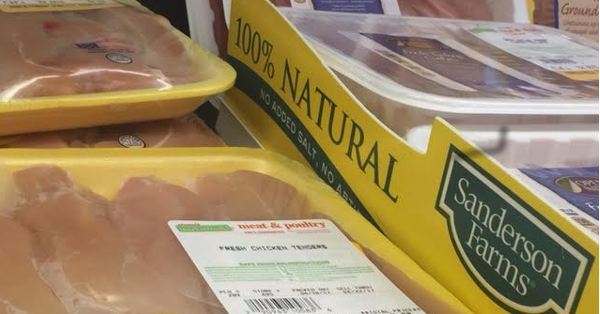
There Could Be Ketamine In Your ‘Natural’ Chicken
Veterinarians use it as an anesthetic. Psychiatrists have started prescribing it for depression. And thanks to the “out-of-body” experience it gives users, ketamine, or “Special K,” has long been a drug of choice for ravers and clubgoers.
June 22, 2017 | Source: Bloomberg | by Deena Shanker
Consumer groups use a novel strategy to sue a poultry producer over claims the drug turned up in its products.
Veterinarians use it as an anesthetic. Psychiatrists have started prescribing it for depression. And thanks to the “out-of-body” experience it gives users, ketamine, or “Special K,” has long been a drug of choice for ravers and clubgoers.
But according to a new lawsuit brought by consumer advocacy groups, there’s another place the drug might show up: In Sanderson Farms’ “100% Natural” chicken products. The filing couldn’t be immediately confirmed in court records.
The use of “natural” in advertising has long been a catch-all for a lot of things many would consider less than so. Under a U.S. Department of Agriculture Food Safety and Inspection Service (FSIS) program, thousands of samples of meat and poultry products are analyzed each year, looking for residues of certain drugs, pesticides, and other contaminants. FSIS can take enforcement action including levying fines or closing facilities. Multiple violations land a company on the Residue Repeat Violator List. Many of these products use the word natural as part of their labeling and advertising.
Ketamine and other questionable substances appeared in FSIS test results of Sanderson chicken, according to the complaint filed in San Francisco federal court Thursday by Organic Consumers Association, Friends of the Earth, and Center for Food Safety. Plaintiffs said they obtained the test results through the Freedom of Information Act.
Between November 2015 and November 2016, FSIS conducted 69 separate inspections of Sanderson Farms’ locations in Georgia, Louisiana, Mississippi, North Carolina, and Texas. In thirty-three percent of the visits, some residue testing came back positive. The plaintiffs counted 49 instances in which “samples tested positive for residues that are not ‘100% Natural,’” including five findings of chloramphenicol, a potent antibiotic that can cause bone marrow suppression in humans and isn’t approved for use in animals that will become food. (Food regulators can seize products found to be tainted with it.)
Desethylene ciprofloxacin, a metabolite of ciprofloxacin, a medically important antibiotic for humans, was found three times, according to the lawsuit. Butorphanol, an opioid analgesic, and melengesterol acetate, a synthetic hormone not approved for use in poultry, were also found. The tests also yielded 82 instances of “unconfirmed residues,” including the aforementioned ketamine and some pesticides.
The USDA declined to answer questions about whether enforcement actions resulted from FSIS findings. A request for comment after the lawsuit was filed Thursday wasn’t immediately returned.
While the Sanderson lawsuit alleges the substances were found by government testing, additional analysis would be required to confirm the presence of the “unconfirmed residues,” according to Larry Bohlen, founder and Chief Operating Officer of Health Research Institute, an independent non-profit analytical chemistry laboratory. The ketamine test results in Sanderson poultry was above the USDA’s maximum of 20 parts per billion in beef and pork, Bohlen says. That means, he says, the sample would be a good candidate for further testing with a method specifically used for poultry.
